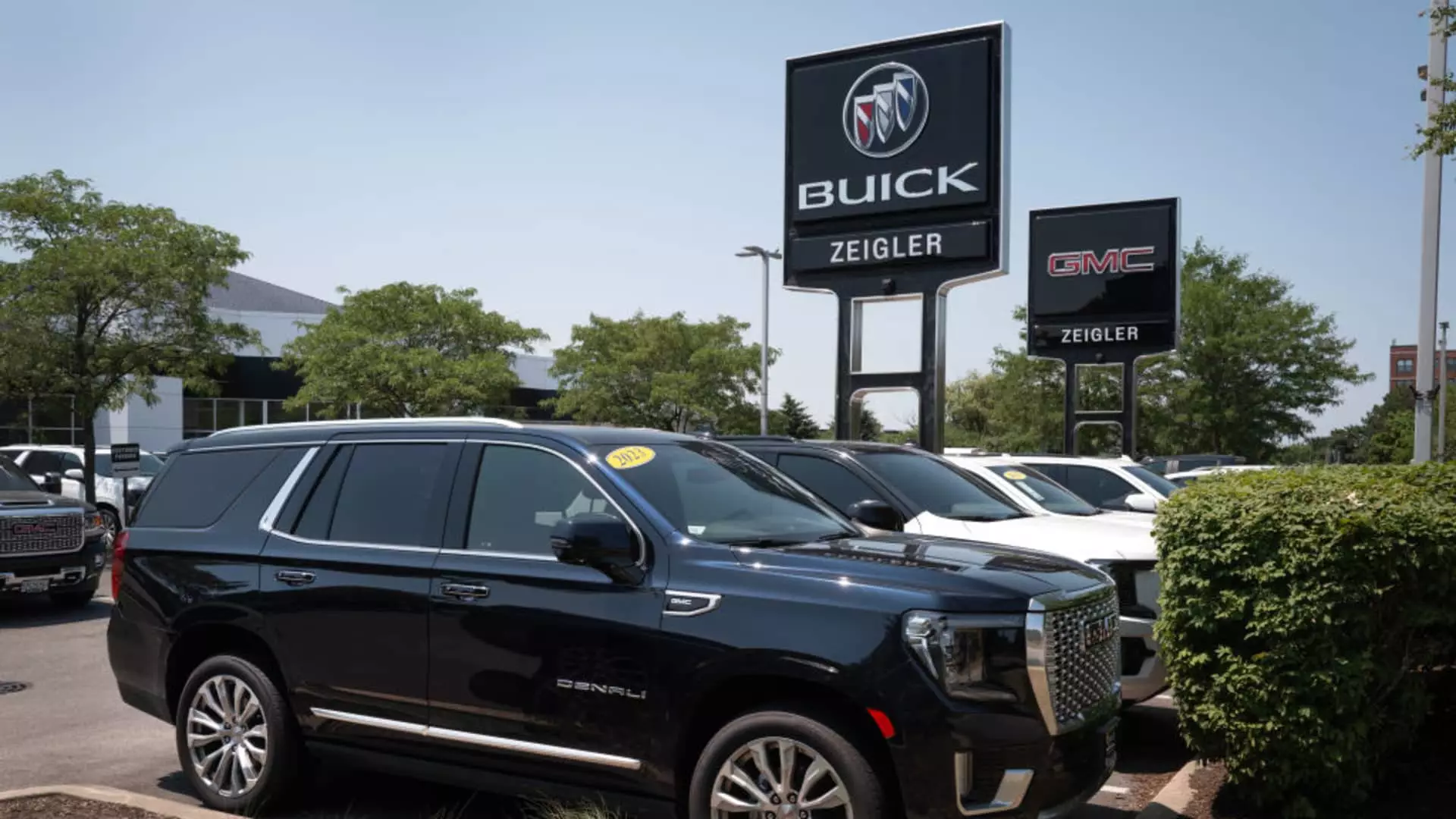General Motors recently announced their best quarterly sales in over three years, showcasing impressive growth in sales of full-size pickup trucks and all-electric vehicles. The Detroit automaker reported sales of 696,086 units for the second quarter, marking a 0.6% increase from the previous year and the highest quarterly sales since the fourth quarter of 2020. Notably, the sales of their EVs saw a significant surge of 40% compared to the previous year, with 21,930 units delivered. However, despite this growth, electric vehicles only accounted for 3.2% of the total second-quarter sales. Additionally, the sales of GM’s full-size pickup trucks were around 229,000 units during the quarter, a 6% increase from the previous year and the best quarterly performance since 2021.
While General Motors’ second-quarter sales showed positive momentum, the auto industry as a whole is facing challenges. Industry forecasters like Cox Automotive and Edmunds predict that second-quarter sales industrywide are expected to remain stagnant compared to the previous year due to a slowdown in retail demand. Moreover, there is uncertainty surrounding the impact of cyberattacks on dealer software provider CDK Global on sales. The ransomware attack on June 19 caused CDK to shut down its dealer management system, affecting a large number of dealerships in North America. The disruption caused by the cyberattack has hindered sales during a crucial period and dealers are working under difficult circumstances to meet customer demand. Some deliveries may be delayed until the third quarter due to the challenges posed by the cyberattack.
The cyberattack on CDK Global not only affected individual dealerships but also had a ripple effect on major dealership groups. The industry’s largest publicly traded dealership groups, including Asbury Automotive Group, AutoNation Inc., Group 1 Automotive Inc., Lithia Motors Inc., and Sonic Automotive Inc., use CDK as their primary dealership management system provider. The disruption caused by the cyberattack forced dealers to delay sales and find alternative ways to sell vehicles. Despite the challenges, industry experts believe that sales impacted by the cyberattack will not be lost but rather deferred to the third quarter.
In addition to General Motors, Toyota and Hyundai also reported their second-quarter sales. Toyota’s U.S. sales totaled 621,549 vehicles during the period, showing a 9.2% increase compared to the previous year. Similarly, the Hyundai brand saw a 2.2% increase in sales with 214,719 vehicles sold during the second quarter. On the other hand, Kia reported a 6.5% decrease in June sales, with sales for the first half of the year down by about 2% to 386,460 vehicles.
General Motors’ impressive second-quarter sales performance reflects the continued demand for full-size pickup trucks and electric vehicles. Despite facing challenges from the cyberattack on CDK Global, the automaker managed to achieve growth in key segments. The auto industry’s overall performance remains steady, with some automakers like Toyota and Hyundai showing positive results. As the industry navigates through challenges and disruptions, the resilience and adaptability of automakers and dealerships play a crucial role in sustaining sales growth and meeting customer demands.

